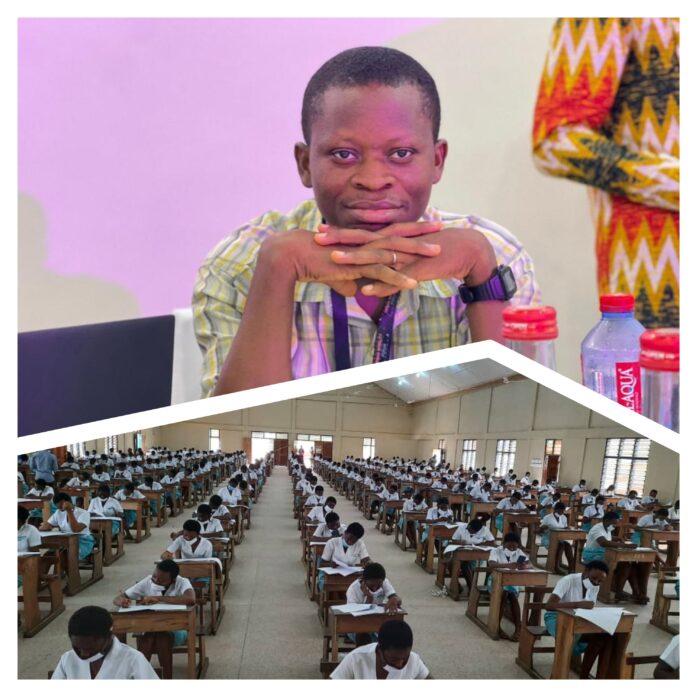As the clock ticks toward the reopening of tertiary institutions for the new academic year in January, thousands of students across Ghana are stuck in a state of uncertainty.
Their futures hang in the balance as they wait for the release of their West African Senior School Certificate Examination (WASSCE) results—results that remain delayed due to a massive debt owed by the Ministry of Education to the West African Examinations Council (WAEC).
For many students, the question is simple: Who cares about their future?
The cause of the delay is a GH₵118 million debt owed by the Ministry of Education to WAEC, which has severely impacted the exam body’s ability to complete critical post-examination processes.
Despite the marking of essays and practical components being completed in late November 2024, the process of scanning objective test cards has come to a standstill.
The scanners, crucial to completing the process, are broken, and WAEC has no funds to repair or replace them.
As a result, the release of the 2024 WASSCE results has been held up, leaving students, parents, and educational institutions in a state of limbo.
In a statement, WAEC clarified that results will only be released once all post-examination challenges, including the scanning of test papers, are resolved.
The Council is still awaiting the release of additional funds from the Ministry of Education to proceed with scanning and other necessary processes. But for many, the question is: Why has it taken so long to resolve this issue?
A Dire Situation for Students and Families
For students, the delay in receiving their WASSCE results means that they cannot proceed with their university admissions. With tertiary institutions set to reopen in a few weeks, many students are at risk of missing out on opportunities to further their education.
They cannot apply for scholarships, attend orientation sessions, or secure accommodation in university hostels—critical steps for those preparing to begin their academic journey.
Parents are equally distressed. Many invested time, effort, and resources into ensuring their children passed the WASSCE exams, only to find that their children’s future hangs in the balance due to a financial impasse between WAEC and the Ministry of Education.
For parents hoping to see their children enrolled in university programmes, this delay adds to the already overwhelming stress of preparing for the next stage of their children’s education.
“My daughter has been waiting for her results for weeks, and now I’m not sure what to tell her.
How do I explain to her that her future is in limbo because of a debt that hasn’t been paid?” says one frustrated parent. “It’s not just about her results—it’s about the opportunities she’s worked so hard for.”
Tertiary Institutions Face Uncertainty
The delay is not just affecting students and parents; tertiary institutions are also feeling the pressure.
Universities are poised to begin the new academic year, but they cannot move forward with student admissions without the WASSCE results.
The uncertainty surrounding the availability of these results complicates the admissions process, potentially leaving universities with empty seats and lost revenue.
The delay in WASSCE results due to unpaid debts raises larger questions about the state of funding and management within Ghana’s education system.
The GH₵118 million debt owed by the Ministry of Education is a staggering amount, and the fact that it has yet to be resolved highlights systemic issues within the sector.
At its core, this delay underscores how education—arguably the most important investment in a nation’s future—is being neglected.
As the government scrambles to find a solution, the human cost of these delays is far too real.
The hopes and dreams of countless students are being jeopardized due to a failure to prioritize the timely release of examination results.
Meanwhile, students’ futures are increasingly dependent on decisions that are entirely out of their control.
As the new academic year looms, the urgency of resolving the debt owed to WAEC could not be more critical.
Students, parents, and tertiary institutions are all calling for swift action from the Ministry of Education.
The time for excuses and delays is long past. The Ministry must settle the outstanding debt and allow the scanning process to resume, ensuring that the WASSCE results are released without further hindrances.
As the situation stands, the education system’s dysfunction is robbing students of opportunities. It’s no longer just an issue of delayed results—it’s an issue of lost futures, missed opportunities, and broken trust in an education system that is supposed to support, not undermine, its students.
Students, parents, and tertiary institutions are all left asking: Who cares? Because, for many, this isn’t just an issue of waiting for results—it’s an issue of waiting for a future.
About the author:
Kodwo Mensah Aboroampa (Amos Kwofie) is a journalist with Multimedia Group Limited, an education enthusiast, and a development communication advocate.

